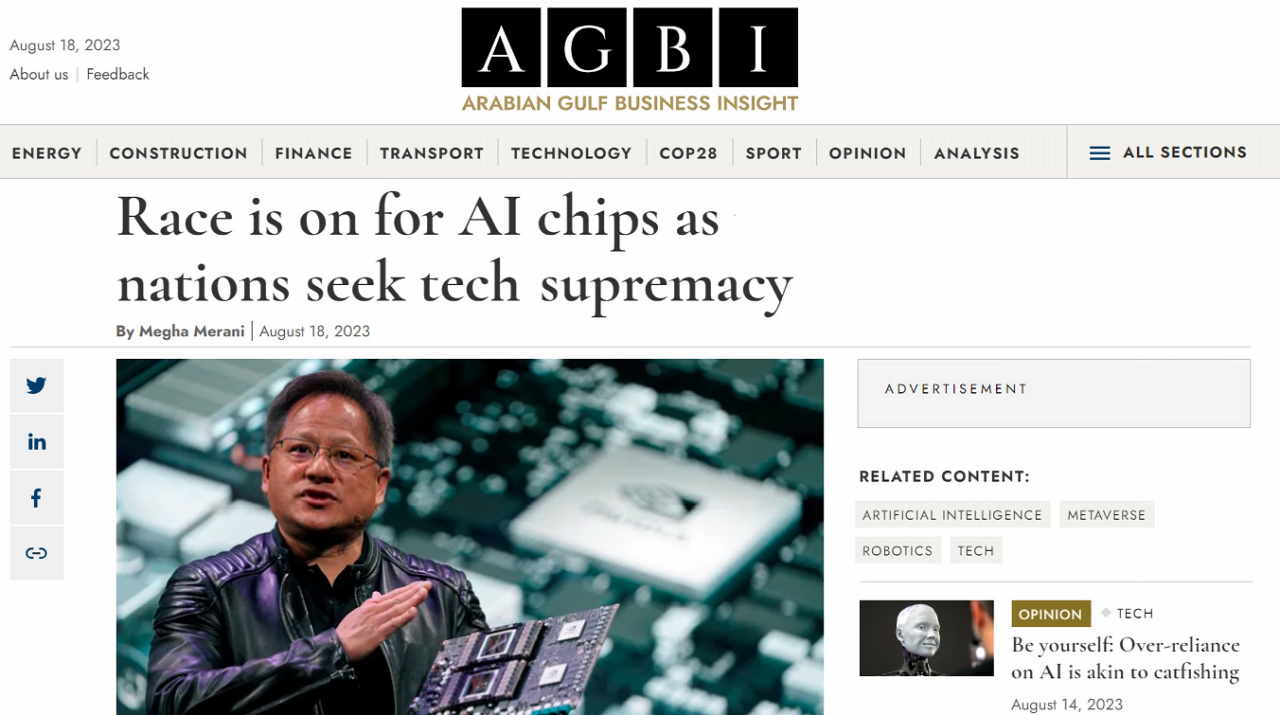
|
|
We are moving into a new era enabled by artificial intelligence, with both enormous potential and enormous risk. This makes AI and access to AI technologies a growing geopolitical issue.
The Middle East is buying a lot of AI chips, but an FT news story, which came close to claiming that Saudi Arabia and the UAE are hoarding processors, stirred up some global controversy!
The focus from Saudi Arabia and the United Arab Emirates on computational research and development across government, national companies and academia, has resulted in an upswing in the demand for high performance computing power. For example, HP is currently building Shaheen III a 100 petaFLOP supercomputer for KAUST (King Abdulla University for Science and Technology). That system alone will use nearly 3,000 NVIDIA Grace Hopper Superchips.
Arabian Gulf Business Insight (AGBI) asked me to comment on the global availability of AI chips, the demands for high performance computing in the Middle East and whether AI chip supply and pricing could become as critical as the oil price. My answer: unequivocally, yes!
The availability, pricing and geopolitics of access to AI chips may well start to look a lot like oil,”
As the world relies on AI more and more. So access to high-end processors will become more and more critical. In that respect, the availability, pricing and geopolitics of access to AI chips may well start to look a lot like oil.
You can read UAE-based journalist Megha Merani‘s full story in AGBI here.
by Carrington Malin
Carrington Malin is a UAE-based marketing and communications professional, consultant, entrepreneur and writer with many years experience of building brands, driving growth and leading high-performance teams. He has worked with a wide range of high-growth, technology and tech-driven ventures across ecommerce, consumer products, digital services, B2B, media, software, hardware and other sectors. These days he focuses mainly on emerging technology ventures related to artificial intelligence (AI), augmented reality (AR) / virtual reality (VR), blockchain, drones, Internet of Things (IoT), robotics and smart cities.

